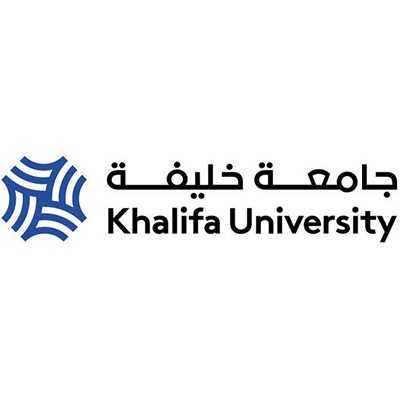Health

Sponsored by

Sponsored by

HEALTH
Health is one of the seven sectors targeted in the UAE’s National Innovation Strategy, which focuses on achieving innovative excellence in select advanced sectors to place the UAE among the world’s most innovative nations by 2021. Increasing our understanding and management of human health is an ongoing challenge, particularly as the technologies we use to explore, diagnose and treat conditions rapidly advance and change. Khalifa University aims to improve healthcare outcomes and advance the definition of ‘healthy' by leveraging genomics, bioinformatics, and biomedical technologies.
GENOMICS
Genome screening is the foundation to personalized medicine initiatives, a paradigm shift in medicine that advocates the prevention, rather that treatment, of the disease state. It is a strategy that is not only cost effective but one that will improve and extend the quality of life for patients. Unfortunately, genome screening is not available as a comprehensive service in the UAE and in most GCC countries. Almost all the UAE’s genome screening needs are fulfilled by services provided abroad: samples are collected, labelled, and shipped abroad for testing. The fundamental problem with overseas services is that their interpretation is through comparison to Caucasian genome data, as reference genome data for the Arab population is limited. According to an audit of the human genome published in Nature in 2016, only 0.08% of global genome data is from people of Arabian ancestry. Consequently, any services performed overseas do not provide full or accurate information of local genetic predispositions for patients. Due to the lack of data on Arab populations, the implementation of effective strategies to promote healthy living among UAE nationals is not available. The Center for Biotechnology was established to provide a solution by attempting to fill this gap in data. Its research team was the first to complete a genome-wide association study of the UAE population. The team is progressing towards analyzing 140 whole genome sequences of UAE nationals as it moves to achieve its goal of completing 1,000 UAE genome sequences. This genome data will be used to construct the UAE and Arab genome reference to allow comparative analyses that will improve the identification of genetic predispositions to common disease in the local population.
BIOMEDICAL ROBOTS
Dr. Cesare Stefanini is leading research to bring his patented design of a microfluidic device for generating an in vitro lymph node towards the implementation phase. The developed device is an automatic organ-on-a-chip that mimics the lymph node. It recreates the anatomy and physiology of lymph nodes in a controlled lab environment to better understand the effects of drug candidates on the immune system. The device offers a platform to guarantee better performance during clinical trials.
The device’s ability to investigate a drug candidate’s impact on the human immune system could also provide valuable, previously unavailable information on the impacts and mechanisms of action of drugs. This could help reduce the high cost of drug development and the high failure rate in toxicity testing. project was among the 2018 Technology Innovation Pioneer Health Award winners, and formation of a startup company is being pursued.